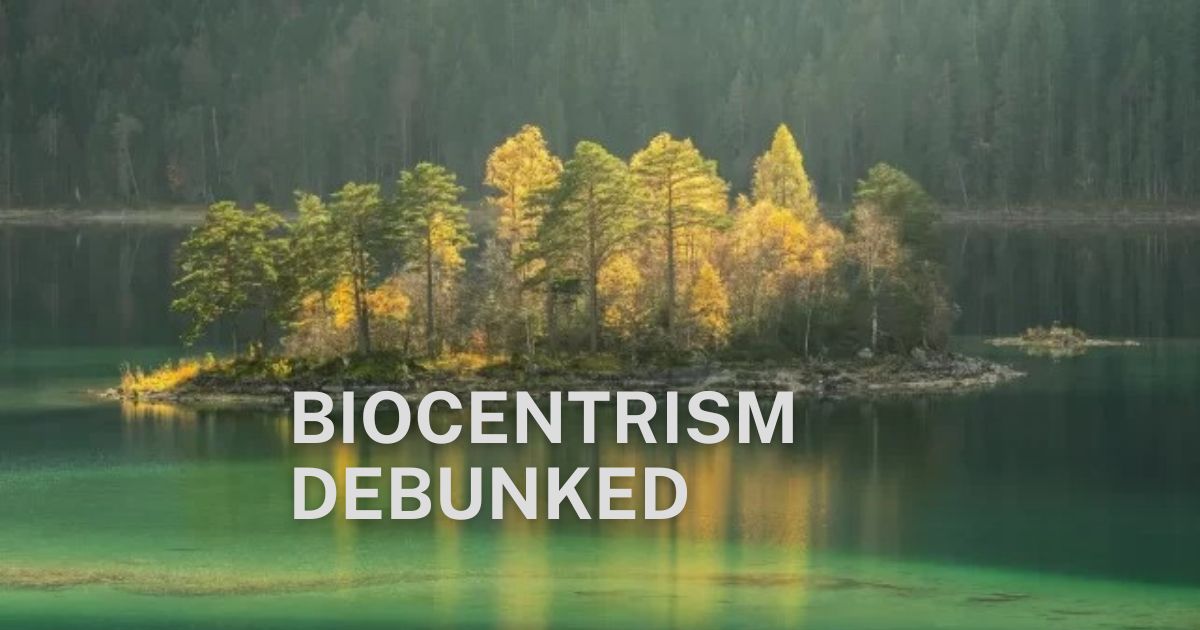Biocentrism, a concept rooted in the belief that all living organisms hold intrinsic value, has been a topic of intense discussion in both scientific and philosophical circles. While it advocates for a harmonious relationship between humans and nature, some critics argue that the core tenets of biocentrism might not withstand closer scrutiny. In this article, we embark on a journey to unravel the intricacies of biocentrism and explore the arguments that seek to debunk its principles.
The Essence of Biocentrism
At the heart of biocentrism lies the idea that all living entities, from the smallest microorganisms to the grandest trees, deserve consideration and respect. Proponents argue that this perspective fosters a more sustainable and ecologically aware society, urging us to reevaluate our relationship with the environment. However, as with any theory, it is crucial to examine its foundations critically.
Biocentrism Debunked: Questioning the Fundamentals
When we delve into the depths of biocentrism, skeptics propose compelling counterarguments. One key contention revolves around the practicality of implementing such a philosophy on a global scale. Critics posit that while the sentiment of valuing all life is noble, it might lack the pragmatism needed for real-world application. Is biocentrism a utopian ideal or a feasible blueprint for our relationship with nature?
Challenges to Biocentrism’s Unity Principle
Biocentrism champions the idea of a shared unity among all living beings. However, some scholars argue that this interconnectedness is oversimplified, overlooking the inherent complexities within ecosystems. Can we truly categorize the intricate web of life into a singular, harmonious unity, or does nature operate on a more nuanced and intricate level than biocentrism suggests?
Biocentrism in Practice: Navigating Real-World Applications
As we scrutinize biocentrism, it is imperative to evaluate its practical implications. Does this philosophy offer tangible solutions to contemporary environmental challenges, or does it risk becoming an abstract concept without substantial real-world impact? Understanding the balance between idealism and pragmatism is key to discerning the role biocentrism plays in our ecological discourse.
Beyond Biocentrism: Exploring Alternative Perspectives
While biocentrism has undeniably sparked valuable conversations, it is essential to acknowledge alternative viewpoints. Diverse ecological philosophies exist, each contributing unique insights to our understanding of the environment. Are there alternative frameworks that better align with the complexities of our interconnected world, or does biocentrism offer an irreplaceable perspective?
The Roots of Skepticism: Unpacking the Notion of Biocentrism Debunked
In our exploration of biocentrism debunked, it’s crucial to dissect the origins of skepticism surrounding this ecological philosophy. Critics often question the practicality of prioritizing the well-being of all living organisms, asserting that such a broad approach might oversimplify the complexities of our relationship with the environment. By understanding the roots of skepticism, we can engage in a more informed dialogue about the feasibility and applicability of biocentrism in our evolving world.
Biocentrism in the Crosshairs: Addressing Challenges and Contradictions
As the discourse unfolds, it becomes apparent that biocentrism debunked is not a one-size-fits-all verdict. Examining the philosophy’s inherent challenges and contradictions is essential. Critics argue that the very principles of unity and interconnectedness, while appealing in theory, face significant hurdles when applied to the intricate web of natural systems. It prompts us to question whether the ideals of biocentrism can withstand the nuanced realities of our ecosystems.
Beyond Rhetoric: Analyzing the Practical Implications of Biocentrism Debunked
Moving beyond theoretical debates, we delve into the practical implications of the biocentrism debunked narrative. Does challenging the core tenets of this philosophy lead to more effective environmental conservation strategies, or does it risk undermining the urgency of addressing ecological crises? By scrutinizing the real-world consequences of biocentrism, we gain insights into how environmental philosophies shape our approach to sustainability and conservation.
A Global Perspective: Cultural Variances in Biocentrism Debunked Discourse
Biocentrism, as a concept, is not immune to cultural variations and interpretations. As discussions surrounding biocentrism debunked gain momentum, it’s essential to explore how different cultures perceive and integrate these ecological ideals. Are there universal truths within the biocentric framework, or do cultural nuances shape the discourse differently? Understanding these variations broadens our perspective on the global relevance and adaptability of biocentrism.
The Role of Science: Examining Scientific Critiques in Biocentrism Debunked
Scientific scrutiny forms a significant aspect of the biocentrism debunked narrative. Critics often question the empirical foundations of this philosophy, demanding robust evidence to support its claims. Does the scientific method align with the principles of biocentrism, or do conflicting paradigms emerge? Exploring the intersection of science and philosophy allows us to assess the validity of biocentrism in a world where evidence-based reasoning holds substantial sway.
Charting the Future: Redefining Ecological Discourse Beyond Biocentrism Debunked
As we navigate the landscape of ecological philosophy, it’s imperative to consider the trajectory of our discourse beyond the biocentrism debunked narrative. Are there evolving paradigms that incorporate the merits of biocentrism while addressing its criticisms? By envisioning a future where ecological discourse evolves, we pave the way for a more comprehensive understanding of our role in sustaining the delicate balance of life on Earth.
Conclusion: A Nuanced Exploration
In conclusion, the discourse surrounding biocentrism and its alleged debunking is a multifaceted conversation. By critically examining its principles, addressing practical challenges, and exploring alternative perspectives, we can engage in a more nuanced understanding of our relationship with the natural world. As we navigate the intricacies of environmental philosophy, the journey toward sustainable coexistence continues, evolving with the ever-changing tapestry of life.




